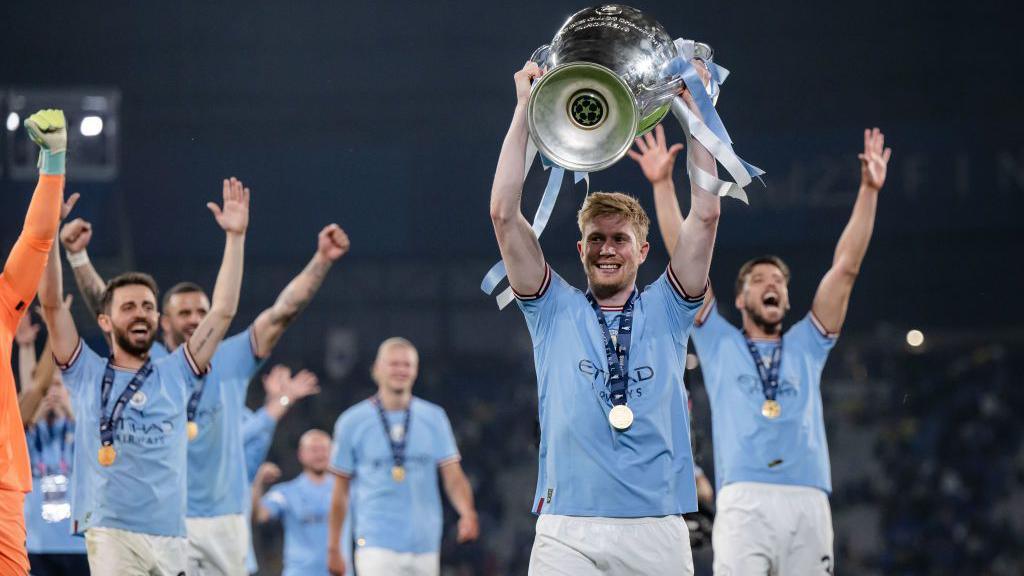News And PoliticsCommunications And EntertainmentSports And FitnessHealth And LifestyleOthersGeneralWorldnewsBusiness And MoneyNigerianewsRelationship And MarriageStories And PoemsArts And EducationScience And TechnologyCelebrityEntertainmentMotivationalsReligion And PrinciplesNewsFood And KitchenHealthPersonal Care And BeautySportsBusinessFamily And HolidaysStoriesIT And Computer ScienceRelationshipsLawLifestyleComedyReligionLifetipsEducationMotivationAgriculturePoliticsAnnouncementUSMLE And MedicalsMoneyEngineeringPoemsSocial SciencesHistoryFoodGive AidBeautyMarriageQuestions And AnswersHobbies And HandiworksVehicles And MobilityTechnologyFamilyPrinciplesNatureQuotesFashionAdvertisementChildrenKitchenGive HelpArtsWomenSpiritualityQuestions AnsweredAnimalsHerbal MedicineSciencePersonal CareFitnessTravelSecurityOpinionMedicineHome RemedyMenReviewsHobbiesGiveawayHolidaysUsmleVehiclesHandiworksHalloweenQ&A
Top Recent
Loading...
You are not following any account(s)
dataDp/3575.jpeg
Futbol

'One Of The Greatest' - De Bruyne To Leave Man City
~5.5 mins read
Kevin de Bruyne has announced he will leave Manchester City when his contract expires at the end of the season. De Bruyne, 33, has won 16 trophies since joining City from Wolfsburg in 2015, including six Premier League titles and the Champions League in 2023. Reacting to the news, City manager Pep Guardiola said De Bruyne is "one of the greatest midfielders to ever play in this country". The Belgium midfielder has scored 106 goals in 413 appearances for City, who described him as a "global icon of the game", but he has started just 19 matches this season. "Whether we like it or not, it's time to say goodbye," De Bruyne wrote on social media. And Guardiola admitted: "It was not easy for me to tell him it [his City career] won't continue." In an impassioned post, De Bruyne expanded: "Football led me to all of you - and to this city. Chasing my dream, not knowing this period would change my life. This city. This club. "These people gave me everything. I had no choice but to give everything back. And guess what - we won everything. "Whether we like it or not, it's time to say goodbye. Suri, Rome, Mason, Michele, and I are beyond grateful for what this place has meant for our family. Manchester will forever be on our kids' passports - and more importantly, in each of our hearts. "This will always be our home. We cannot thank the city, club, staff, team-mates, friends, and family enough for this 10-year ride." Guardiola compared De Bruyne's impact to that of other title-winning former City players Vincent Kompany, Sergio Aguero and David Silva - all of whom have had statues built outside Etihad Stadium. "A sad day but a happy day for the fact that I had the pleasure personally to live this time with him," Guardiola said. "What he gave us, all of us, with his humanity and his influence in our success in the last decade. Of course, part of us is leaving. When Vincent or Sergio or David left, these players have contributions. "He's one of the greatest in this country. Always I have to be careful for the respect for the players that have played incredible roles, but there's no doubt he's one of the greatest for sure. "The doors are open here for the rest of his life. He's part of this family, this club." Asked if De Bruyne will also have a statue, Guardiola added: "I don't know. But I will bet a lot of money that is going to happen, that's for sure. He deserves to." City, who have won the past four Premier League titles, said they are planning a "fitting tribute" before the end of the season. "Manchester City will bid an emotional farewell to Kevin de Bruyne this summer when his contract expires, bringing an end to a glittering 10-year period at the club," the club said. "The Belgian, a global icon of the game, has played 413 matches for City. "During that period, he has scored 106 times, making him the first City midfielder since Colin Bell to reach a century of goals. "The club and all of our fans will now take the time to deliver a fitting tribute and farewell to one of the greatest players to ever play in the Premier League." The Belgium captain moved to City from Bundesliga club Wolfsburg in 2015 for £55m. Manager Guardiola joined City a year later and helped to develop De Bruyne, who had played in wide and attacking roles, into a central midfielder. De Bruyne played a huge part as City enjoyed a dazzling period of success, culminating in the club's first Champions League triumph two seasons ago in Istanbul, where they beat Inter Milan in the final. But De Bruyne has started to struggle with injury in recent years. He missed almost five months of last season as City won their fourth consecutive Premier League title, playing just 26 games in all competitions. More recently, he paused contract negotiations while recovering from a thigh problem sustained in September. The former Chelsea player said he was "open to everything" last summer after being linked with a move to Saudi Arabia. It appears that De Bruyne could play for City in the group stage of this summer's Club World Cup, but as it stands he would not be eligible for the knockout stage as his contract expires at the end of June. Guardiola says it is up to the player to decide whether to sign a short extension that covers the rest of the tournament and then leave. World governing body Fifa has also tweaked its registration rules to effectively mean clubs can sign players solely for the duration of the tournament. De Bruyne began his professional career with Belgian side Genk before signing for Chelsea in January 2012 for about £7m. He made just nine appearances for the Blues and spent a season on loan at Werder Bremen before moving to Wolfsburg in 2013. The midfielder has also made 109 appearances for Belgium, appearing at three European Championships and three World Cups, finishing third at the 2018 global tournament in Russia, when the Belgians beat England 2-0 in the play-off. Since De Bruyne joined City in 2015 he has the most Premier League assists (117), chances created (827) and big chances created (193). He has the second highest number of assists in Premier League history, behind only Ryan Giggs (162). He has the joint most Premier League Player of the Season awards with two - in 2019-20 and 2021-22 - alongside Thierry Henry, Cristiano Ronaldo and Nemanja Vidic. Surprisingly, he has never won a Player of the Month award though. Level with Henry for the most assists in a single Premier League season, producing 20 in the 2019-20 campaign. Has won the most Premier League Playmaker awards, given to the player with the most assists, winning it three times (2017-18, 2019-20 and 2022-23). Has also won four Manchester City Player of the Season awards, has been in the Champions League Team of the Season twice and finished third in the Ballon d'Or in 2022. Analysis by BBC Sport chief football writer Phil McNulty When any conversation takes place, whether it is now or in the future, about the greatest players to grace the Premier League, Kevin de Bruyne will justifiably be part of it. The heartbeat of one of the finest teams in the history of British football, De Bruyne was a creator supreme, a scorer of goals, a controller and dictator of games at the very highest level. The Premier League has been fortunate to have him and we have been fortunate to watch him. The word "great" is bandied around too easily - but it fits De Bruyne perfectly. One stand-out personal memory was De Bruyne's performance when Manchester City beat Real Madrid 4-0 in the Champions League semi-final second leg at Etihad Stadium in May 2023. City's first 45 minutes, in which they established a 2-0 lead, remains one of the finest halves of football I have ever witnessed - they delivered quality of the highest level, executed at a searing pace that bewildered Real Madrid. At the heart of it all was De Bruyne, the great orchestrator of a magnificent team display. If there is a sadness about De Bruyne's City career, it is that he was injured during both of their Champions League final appearances, suffering a serious facial injury following a collision with Antonio Rudiger in the 1-0 loss to Chelsea in 2021, then sustaining a hamstring injury in the victory against Inter Milan two years later. BBC Radio Manchester journalist Mike Minay Kevin de Bruyne was linked with Saudi Arabia last summer, and although he told me earlier in the season he personally had not held any talks, that could be an option. He's got bags of talent, and although the injury concerns in recent seasons could be an issue for top clubs, he is still an elite-level player so could really end up anywhere.
All thanks to BBC Sport
profile/5377instablog.png.webp
Instablog9ja

Why Is Obi Cubana Celebrating His Birthday In Abuja Instead Of Onitsha? Medical Doctor Quizzes
~2.9 mins read
dataDp/1032.jpeg
Worldnews

India And Pakistan Near Strategic Standoff After Pahalgam Attack In Kashmir
~6.3 mins read
Tensions have escalated between the two nuclear powers following Tuesday’s attack on tourists by separatists in Indian-administered Kashmir. Islamabad, Pakistan – Pakistan threatened to suspend its participation in all bilateral agreements with India, including the 1972 Simla Agreement, on Thursday in a retaliatory move after India said it would suspend its own participation in the Indus Water Treaty and close the land border the day before. The Simla Agreement was a peace accord signed by the two countries a few months after Bangladesh became independent from Pakistan. In a communique issued following a meeting of the National Security Committee (NSC), Pakistan’s top civil-military decision-making body, Pakistan has warned India that any disruption of its water supply would be considered “an act of war”, adding that it was prepared to respond, “with full force across the complete spectrum of national power”. The NSC meeting, which took place on Thursday in Islamabad, was led by Pakistani prime minister Shehbaz Sharif, alongside other government officials and chiefs of its military forces. The NSC statement mirrored actions announced by India on Wednesday, and included the closure of the Wagah Border Post with “immediate effect”, the suspension and cancellation of SAARC visas for Indian nationals (excluding Sikh pilgrims), the designation of Indian defence advisors as personae non grata in Pakistan, a reduction in the staff of the Indian High Commission, the closure of Pakistani airspace to Indian airlines, and the suspension of all trade with India. The moves follow India’s response to Tuesday’s attack on tourists in Indian-administered Kashmir, which resulted in the deaths of at least 26 people. Following a cabinet meeting on Wednesday, chaired by Indian Prime Minister Narendra Modi, the Indian government announced a series of measures, including the suspension of its part in the 65-year-old Indus Waters Treaty, a pact that allows both countries to irrigate their agricultural lands. In a media conference, Indian Foreign Secretary Vikram Misri also announced the closure of the border with Pakistan, slashed the number of Indian diplomatic staff in Pakistan, ordered Pakistani citizens under the SAARC scheme to leave the country within 48 hours, and expelled Pakistani military attaches posted in India. This response has been soundly interpreted as India blaming Pakistan for the attack in Kashmir. The Himalayan territory of Kashmir has been a flashpoint between the two countries since they gained independence from British rule in 1947, with each country controlling parts of Kashmir but claiming it in full. Since independence, the nuclear-armed neighbours have fought four wars, three of them over Kashmir. Pakistan’s Foreign Minister Ishaq Dar, who also serves as deputy prime minister, called the Indian steps “immature and hasty” in a television interview on Wednesday night, . “India has not given any evidence [of Pakistani involvement in the attack].” They have not shown any maturity in their response. This is not a serious approach. They started creating hype immediately after the incident,” said Dar, who also serves as deputy prime minister. Defence Minister Khawaja Asif also rejected India’s implication of Pakistani involvement in the attack. “India’s allegation against Pakistan for the Pahalgam incident is inappropriate. There should be no ambiguity that we strongly condemn terrorism,” Asif said. Following the Pahalgam attack, commentary in Indian media and talk among the political leadership has leaned towards launching a military strike on Pakistan, drawing parallels with the 2019 Balakot strikes. In February 2019, following an attack in Pulwama, Indian-administered Kashmir, in which more than 40 Indian soldiers were killed, India launched air strikes in Balakot, northern Pakistan, targeting what it called “militant hideouts”. Pakistan said the strikes only hit an uninhabited forest and responded with its own air strikes near Indian military targets, causing no casualties. Both sides also deployed fighter jets and, in an aerial dogfight, an Indian aircraft was shot down. Its pilot, Abhinandan Varthaman, was captured but released two days afterwards. Indian Defence Minister Rajnath Singh also hinted at a “strong response”, reiterating India’s “zero tolerance” policy on terrorism. “We will not only reach out to those who have carried out this incident. We will also reach out to those who, sitting behind the scenes, have conspired to commit such nefarious acts on the soil of India,” he said, at the Marshal of the Air Force Arjan Singh Memorial Lecture in New Delhi on April 23. Analysts and security officials in Pakistan say they believe that Indian military action could now be possible, but said the country was “ready for any Indian misadventure”. “We are maintaining a high level of alertness and vigilance, but unlike India, we don’t want to create any unnecessary hype by talking about our readiness,” a security source told Al Jazeera on condition of anonymity, as he has not been authorised to speak on the matter. “India is wrong if it thinks there isn’t going to be any tit for tat. However, we are both nuclear-armed countries, and Indian aggression could lead to an irresponsible situation. Both of us should act carefully,” he added. The official further questioned India’s allegation of Pakistani involvement, noting that the attack took place nearly 200km (124 miles) from the Line of Control, the de facto border between the two countries, and highlighted the presence of more than 500,000 Indian security personnel in the Kashmir valley. He also pointed to the recent visit to India by United States Vice President JD Vance, who arrived in the country on Monday with his wife and two children for a four-day visit, taking in a meeting with Prime Minister Modi. “How do you think this attack will serve Pakistan, especially with JD Vance being there?” he asked. “Could this attack lead to the liberation of Indian Kashmir? Why won’t Indian authorities take time to look inward and introspect? Will they ever accept their own security shortcomings?” Past skirmishes have previously raised the spectre of war between the two countries, which together have a population exceeding 1.5 billion. Asfandyar Mir, a security analyst specialising in South Asia, said Pakistan is likely to reserve its military response for a contingency in case of Indian action while monitoring how the suspension of the Indus Waters Treaty unfolds. The Indus Basin is a lifeline for the populations of Pakistan and India, who rely on the river water flowing from the Himalayas for irrigation and agriculture. However, Mir added that military action increasingly appears to be a likely option for India, similar to 2019, but “potentially more visible”. Referring to the outrage over Tuesday’s attack and calls for a strong response in the Indian media, he said: “The domestic mood in India is strongly trending toward a response. That said, India faces a more acute China challenge than in 2019, so it has to carefully factor that into its response and how an escalation may play out,” he told Al Jazeera. China, India’s northern neighbour, is also one of Pakistan’s closest allies. China and India engaged in a minor conflict on their border in June 2020. On the other hand, Salman Bashir, former Pakistani envoy to New Delhi, told Al Jazeera he believes the decisions made by India’s Cabinet Committee on Security have been based on a “mistaken assumption” about Pakistan’s weakness. “These connote a fight-to-the-finish syndrome, which is based on naivete and wishful thinking. But I expect a response from Pakistan which is mature and commensurate to the challenge posited by India,” he added. Bashir, who also served as Pakistan’s foreign secretary from 2008 to 2012, said the Bharatiya Janata Party (BJP)-led Indian government may have considered military action, but the scale of such moves, given the history between the two countries, presents a dilemma. “In any case, Pakistan will not assume that this is it. We should be prepared for more to come. Options for diplomacy are rather slim. A back-channel contact may work, but I am not sure there is one,” the former diplomat said. Mir, the Washington DC-based security analyst, said Pakistan is more stable than in previous years and that he believes the country is therefore likely to respond forcefully under army chief Asim Munir, who has accused India of conducting “proxy operations” in Pakistan. Pakistan has blamed India for violence on its soil, most recently accusing it of masterminding the March attack on the Jaffar Express, a passenger train targeted by Baloch separatists. The 36-hour standoff, in which at least 26 passengers were killed, was Pakistan’s first-ever train hijacking. However, Mir said both sides have failed to draw constructive lessons from the 2019 crisis. “The relative calm we saw after 2019 was largely a function of bold conciliation by former Pakistani Army chief General Bajwa and India choosing to focus on its border with China and its ambition to become a global power. But careful observers knew the relationship was only deteriorating,” he said. Bashir, the former envoy, said Pakistan could make a grand gesture if Prime Minister Sharif announces a visit to India. “In Pakistan-India situations, gestures like Shehbaz Sharif announcing a visit to New Delhi are doable. The pendulum has swung too far. We need to do whatever is necessary to bring things under control,” he said. Follow Al Jazeera English:...
Read this story on Aljazeera
profile/5683FB_IMG_16533107021641748.jpg
News_Naija

Male Infertility: Confronting Stereotypes And Finding Support
~3.3 mins read
Infertility can be a heavy burden for men, affecting them both emotionally and socially. It often feels like a hidden weight, shrouded in silence and shame. Societal stereotypes make it worse by suggesting that men should always appear strong and unaffected. However, ignoring the problem won’t make it disappear. By challenging the stigma, we can empower men to confront infertility with courage and seek the support they need. Understanding male infertility is essential, its facts, causes, and the myths surrounding it. Male infertility occurs when a man is unable to impregnate a woman despite having regular unprotected sex. It affects millions of individuals worldwide. The most common diagnostic tool is semen analysis, which evaluates sperm count, shape, and motility. An accurate diagnosis is the first step toward treatment, and understanding the condition is key to achieving a solution. Causes of male infertility Numerous factors can contribute to infertility. These include genetic issues such as chromosomal abnormalities or missing segments of the Y chromosome, which determines male characteristics. Hormonal imbalances, like low testosterone levels, can affect sperm production, as can physical conditions like varicoceles (enlarged veins in the scrotum) and various infections. Lifestyle choices also play a major role. Stress, smoking, excessive alcohol consumption, and exposure to environmental toxins can all reduce fertility. Previous injuries or trauma may also affect sperm quality. Debunking myths and misconceptions There are many myths about male infertility. One common myth is that men cannot be infertile and that infertility is solely a woman’s issue. Others believe that men are less emotional or less affected by infertility, which is false. Men experience shame, frustration, and sadness, just like women do. Some associate infertility with weakness or failure. But infertility is a medical condition, often influenced by factors beyond one’s control. Recognising this truth is crucial in dismantling the stigma. The emotional toll on men Infertility can be emotionally devastating for men. They often feel inadequate or ashamed of being unable to father a child. These feelings can lead to depression, anxiety, and low self-esteem. The experience is made even more isolating by the tendency of men to remain silent, fearing judgment or appearing “less masculine.” One persistent myth stems from traditional roles that pressure men to appear strong and capable at all times. Admitting to fertility struggles can feel like a loss of identity. Many men fear being judged by their families or peers, reinforcing their silence. The power of shared stories Some brave men have broken this silence by sharing their experiences. Public figures from various fields have opened up about their infertility struggles, encouraging others and proving that infertility does not diminish one’s masculinity or worth. However, more voices are needed to normalise these conversations. Seeking support: Medical and emotional Men dealing with infertility should seek both medical and psychological support. Early diagnosis increases treatment options and improves outcomes. Emotional well-being is just as important as physical health, and counselling can be a lifeline, reducing distress, improving mental health, and offering coping strategies. Contrary to popular belief, seeking support is not a sign of weakness; it is a courageous step forward. Barriers to help Many men remain silent due to stigma or shame. Others don’t know where to find help or fear being judged. Additionally, limited access to male-focused fertility clinics and services compounds the problem. When men feel safe and understood, they’re more likely to seek the care they need. Healthcare providers play a vital role in this by offering clear, respectful information about male fertility and creating an environment of trust. The role of families and communities Friends and family can help by encouraging open, compassionate conversations. Challenging stereotypes about masculinity, strength, and success helps dismantle shame. Fertility experts recommend early testing and comprehensive care, while mental health professionals highlight the importance of expressing emotions to aid healing and reduce anxiety. Breaking the stigma Dismantling the stigma around male infertility enables men to seek help, receive timely diagnoses, and increase their chances of becoming fathers. Compassion and understanding can turn silence into support, and shame into strength. Everyone benefits when men are empowered to care for both their reproductive and emotional well-being. If conception hasn’t occurred after one year of regular, unprotected intercourse, it’s advisable to see a doctor. Symptoms like testicular pain or swelling, or low libido, may also indicate a fertility issue and should not be ignored. Early action matters Taking early action leads to better results and reduced emotional strain. If you’re facing fertility challenges, don’t hesitate, ask questions, seek answers, and take charge of your health. Everyone deserves the opportunity to build a family and live with confidence. Together, we can change perceptions and create a society where men no longer suffer in silence.
Read more stories like this on punchng.com
Loading...
 Futbol
Futbol
 Instablog9ja
Instablog9ja

 Worldnews
Worldnews
 News_Naija
News_Naija